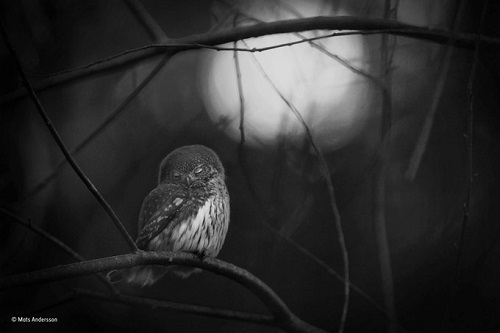FWP:
SETS == IDIOMS
For background see S. R. Faruqi's choices. This verse is NOT one of his choices; I thought it was interesting and have added it myself. For more on Ghalib's unpublished verses, see the discussion in {4,8x}.
The verse rests on a somewhat convoluted set of idioms. Into the lover's dark 'distress-chamber' of ill-fortune, no 'breaths of dawn [anfaas-e .sub;h] come . So the lover replaces the first pale white light of dawn with a faint, 'pale' breath of his own from which he has 'destroyed' or 'torn out' (as in shikastan ) the color, so that it comes to have a pallid rang-e shikastah . The reason this works is that there's an idiom in which the first light of dawn is called the 'breath of dawn'.
For another verse that connects the rang-e shikastah to the light of dawn, see {13,2}. And for a Mirian example, see M{277,2}.
At first I hoped this verse was going to be like the wonderfully grandiose {62,8}; but alas, it's not. In that (greatly superior) verse, every morning the lover displays another of his wounds, which people mistake for the rising sun. In the present verse, the lover's 'pale', color-stripped breath creates the dawn light only in his own wretched bedchamber.

Asi:
This too is an imaginary [;xayaalii] theme. He says that in the distress-chamber of ill-fortune and inauspiciousness, where is there a dawn?! In place of dawn, every day I scatter/disperse the color of a single breath, through which dawn seems to appear. Since 'breathing' [tanaffus] is used for the coming of the light of dawn and for the taking of a breath, from this in the poet's mind a theme was engendered. And instead of reality, the foundation of the verse has been based only on the imagination.
== Asi, p.260